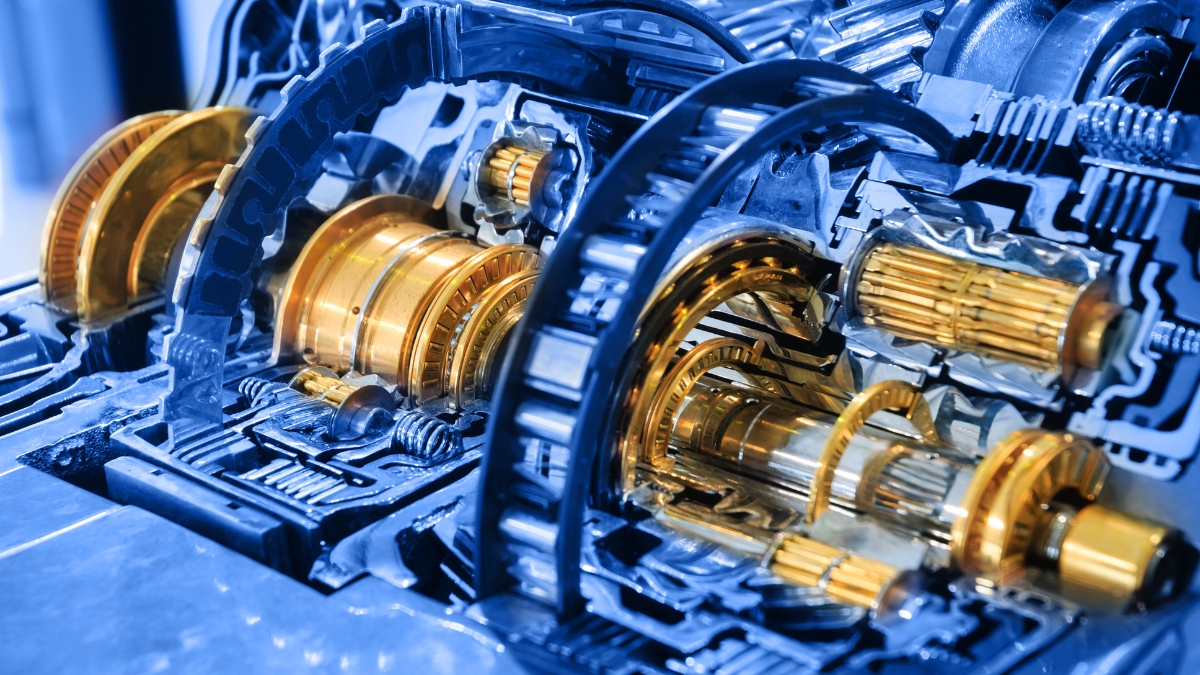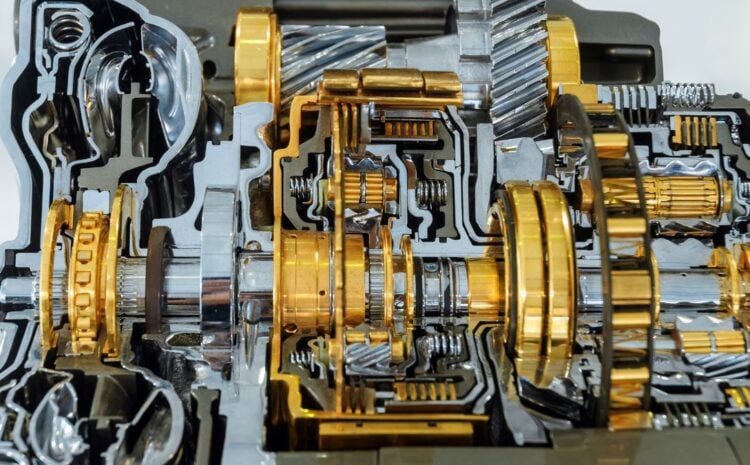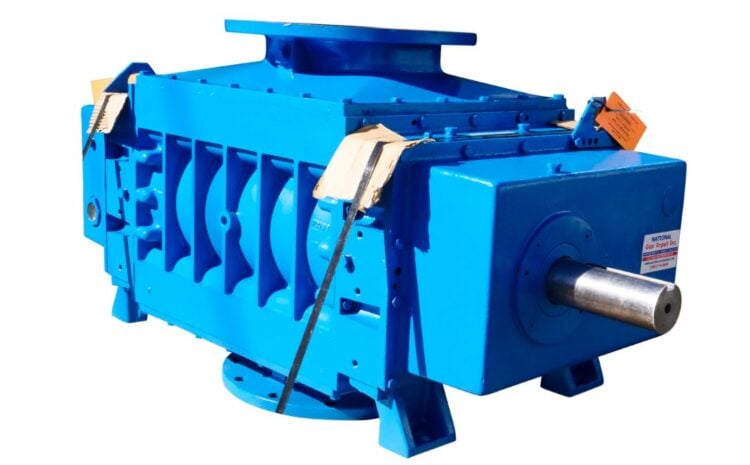Industrial gearboxes are critical in driving machinery and equipment as a cornerstone of industrial applications. These powerful components transform speed and torque to suit various operational needs, ensuring optimal performance and efficiency. However, gearboxes are prone to wear and tear, necessitating regular maintenance and care. This article will explore the industrial gearbox breakdown causes and solutions.
Understanding How an Industrial Gearbox Gets Damaged
Wear and Tear from Normal Operation
One of the most common causes of industrial gearbox damage is prolonged use’s inevitable wear and tear. The gear teeth, which are in constant contact during operation, naturally degrade over time. This wear can be even more pronounced at high speeds, leading to inefficient operation or gearbox failures.
Insufficient Lubrication
Properly lubricating your industrial gearbox is essential to prevent friction and excessive heating between gears and bearings. Poor lubrication leads to accelerated wear and tear, resulting in industrial gearbox failure.
Contamination by External Elements
Dirt, dust, and other foreign particles can infiltrate your gearbox, leading to contamination. These elements cause internal damage to the gear and bearing surfaces, shortening the life of your gearbox.
Overloading and Incorrect Operation
Exceeding the operational limits of your industrial gearbox can cause severe damage. Incorrectly calibrated speed, torque settings, and overtightened bearings can stress the system and lead to failure.
The Significance of Industrial Gearbox Oil
Role of Gearbox Oil
Gearbox oil serves as a critical protective barrier for your industrial gearbox. It reduces wear and friction between gear teeth and bearings, preventing overheating and ensuring optimal performance.
Consequences of Not Changing Gearbox Oil
Regularly changing the oil in an industrial gearbox is a crucial maintenance task that should not be overlooked. Failing to do so can have serious implications for the performance and lifespan of the gearbox.
Over time, as the gearbox operates, contaminants such as dirt, metal particles, and other debris can accumulate in the oil. These contaminants can have an abrasive effect on the internal components of the gearbox, leading to increased wear and tear. Additionally, the presence of contaminants in the oil can disrupt the flow and distribution of lubrication within the gearbox, making it less effective in reducing friction and preventing overheating.
As the lubrication quality diminishes, the gearbox becomes more susceptible to damage. Wear and tear on the gear teeth, bearings, and other components can accelerate, reducing the efficiency of the gearbox and increasing the risk of mechanical failure. Moreover, inadequate lubrication can result in excessive heat generation within the gearbox, further increasing the risk of damage to the components.
Neglecting to change the oil in an industrial gearbox can have severe consequences, including increased wear and tear, reduced efficiency, and a higher risk of mechanical failure. Regularly changing the oil and ensuring that it is free from contaminants is essential for maintaining the performance and longevity of the gearbox.
Can Engine Oil Be Used in Gearboxes?
While it may initially seem that engine oil could serve as an appropriate substitute for industrial gearboxes, it’s critical to understand the distinctions between the two lubricants in terms of their composition and performance characteristics.
Engine oils are formulated to operate under the high-speed, high-temperature conditions typically found in internal combustion engines. They’re specifically engineered to handle the rapid movements of engine parts and the high heat generated during the combustion process.
In contrast, industrial gearboxes have different operational conditions and specific lubrication needs. The oils utilized in gearboxes must function effectively over a more extensive range of speeds and temperatures, making them inherently more versatile than engine oils.
Additionally, gearboxes frequently experience greater levels of contamination from external factors. Consequently, the selected lubricant must manage this extra contamination without compromising its performance.
Selecting the right oil for your industrial gearbox is essential to maintaining its efficiency and longevity. Improper lubrication can lead to issues such as gearbox misalignment, undue thermal expansion, and overheating. These problems can subsequently cause decreased efficiency, heightened wear, and even catastrophic failure. Therefore, it is imperative to choose a lubricant that meets the specific requirements of your gearbox, ensuring its seamless operation and avoiding expensive downtime and repairs.
Checking and Maintaining Gearbox Oil
How to Check Industrial Gearbox Oil Level?
Regularly inspecting your industrial gearbox oil level is essential to ensuring smooth operation. To manually check the oil level, shut down the gearbox and remove the inspection plug. Use a clean rod to measure the oil level, ensuring it aligns with the recommended level in the owner’s manual.
Signs of Low or Contaminated Gearbox Oil
Visual and auditory indicators can alert you to potential issues with your gearbox oil. Leaks, unusual noises, or performance-related issues may signal low or contaminated oil levels.
Tips for Proper Maintenance and Oil Changes
Adhering to the manufacturer’s recommended oil change intervals is crucial to maintaining the performance and longevity of your industrial gearbox. Choose the right oil type, and ensure the oil level remains within the specified range to avoid temperature problems and excessive wear.
Extruder Gearbox Repair: Your Gearbox Solution
At Extruder Gearbox, we specialize in repairing and remanufacturing extruder gearboxes, including extruder gears and Koellmann gears. With 40 years of industry experience, our skilled technicians leverage the latest technology in our advanced repair facility to address any gearbox issue effectively.
We offer high-quality repair solutions that can save you up to 60% on buying costs. Our commitment to quality and customer satisfaction ensures that your extruder will run at peak performance, reducing future disruptions.
Our expertise extends to supporting a wide range of extruder gearboxes, including those from manufacturers like Lufkin Gears and Allen Gears. We can perform reverse engineering and even create gearboxes from scratch, matching the original hardness ratings. With Extruder Gearbox, the search for replacement gearboxes or unavailable parts is over.
Conclusion
Regular industrial gearbox maintenance is vital to preventing breakdowns and ensuring optimal performance. By understanding the causes of industrial gearbox damage and taking proactive measures to address them, you can avoid costly repairs and extend the lifespan of your equipment.
Whether you need a gearbox repair or require a reliable repair service for your industrial applications, Extruder Gearbox is your go-to solution for restoring and enhancing the functionality of your extruder gearboxes. Prioritize industrial gearbox maintenance to ensure the longevity and efficiency of your operations.



